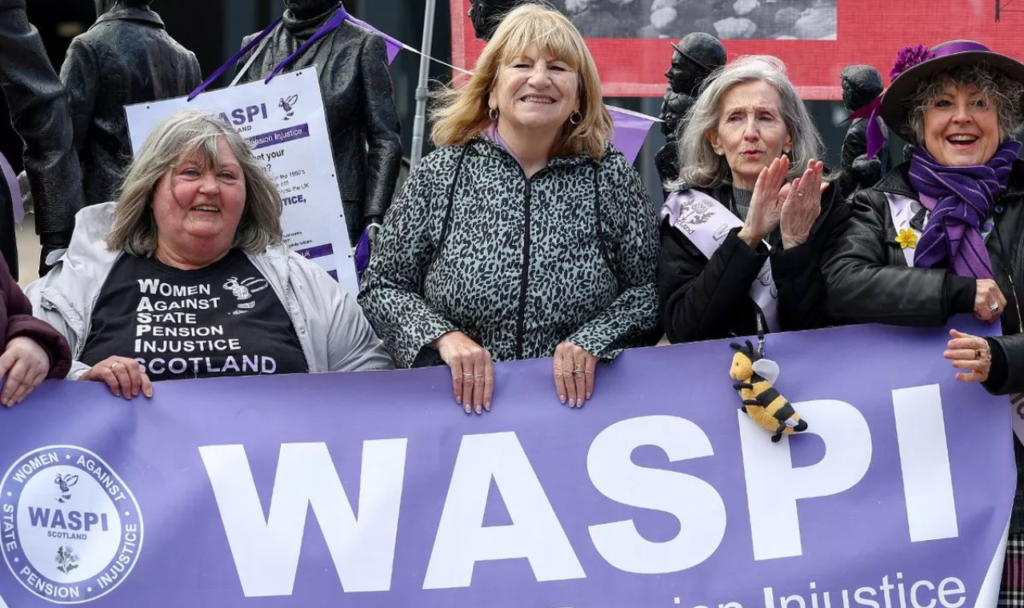The Women Against State Pension Inequality (WASPI) campaign represents approximately 3.8 million women born in the 1950s who were affected by changes to the state pension age. These women saw their retirement age increase from 60 to 65 (and later 66), often without adequate notice. This led to financial hardship and widespread calls for compensation.
In March 2024, the Parliamentary and Health Service Ombudsman (PHSO) found that the Department for Work and Pensions (DWP) had committed maladministration in failing to properly notify women of these changes. The PHSO recommended compensation between £1,000 and £2,950 for each affected woman. However, in December 2024, the government announced that no compensation would be provided.
This article breaks down the facts, government responses, and next steps for WASPI women.
WASPI Pension Age Changes – What Happened?
| Year | Change | Impact on Women |
|---|---|---|
| 1995 | State pension age reform introduced | Pension age for women to gradually rise to 65 |
| 2011 | Further changes to pension age | Pension age increased to 66 |
| 2015 | WASPI campaign launched | Women demand fair notice and compensation |
| 2024 | PHSO finds DWP guilty of maladministration | Recommends compensation between £1,000 – £2,950 |
| 2025 | UK government refuses to compensate women | WASPI continues legal and political action |
Ombudsman Report Findings
The PHSO’s investigation confirmed that the DWP failed to properly inform women about their rising pension age. As a result, millions were unable to financially prepare for retirement.
Key Findings:
- DWP committed maladministration in communicating pension changes.
- Women should have been given adequate notice to adjust their retirement plans.
- Compensation between £1,000 – £2,950 was recommended.
Many affected women had already left the workforce, believing they would receive their pension at 60. Without proper notice, they were left struggling without savings, employment, or support.

Government’s Decision on Compensation
Despite the Ombudsman’s findings, in December 2024, Work and Pensions Secretary Liz Kendall announced that the government would not offer financial compensation.
Government’s Justification:
- The government claims most women were aware of the changes.
- Taxpayer fairness is cited as a reason for refusing compensation.
- The DWP insists it acted lawfully, despite the Ombudsman’s ruling.
The government argues that providing financial redress would set a “costly precedent”, leading to further claims from other groups affected by pension or welfare changes.
Reactions from WASPI and Affected Women
The WASPI campaign and thousands of affected women have expressed outrage at the government’s decision.
WASPI Campaign Chair Angela Madden Stated:
This decision is a betrayal of the 3.8 million women who have suffered because of the DWP’s failure. The government is turning its back on pensioners who have worked hard all their lives.
Public Response:
- Cross-party MPs have urged the government to reconsider.
- Legal action is being explored by WASPI supporters.
- Public protests and petitions are gaining momentum.
Public frustration has led to rallies outside Parliament, with campaigners calling for further debates in the House of Commons. Some MPs are pushing for a compromise solution, such as reduced state pension age eligibility for affected women.
What Happens Next?
Despite the government’s decision, the WASPI campaign is pushing forward with legal and political challenges.
Next Steps for WASPI Women:
- Legal Action: Exploring potential lawsuits against the UK government.
- Political Pressure: Engaging with MPs to demand reconsideration.
- Public Awareness: Organizing protests and petition campaigns.
Legal experts suggest that if the government continues to refuse direct compensation, alternative solutions may be sought. One possibility is extra pension credits for affected women to partially offset their financial losses.
Conclusion
The WASPI compensation debate remains one of the biggest pension injustices in UK history. While the Ombudsman ruled that DWP mishandled the transition, the UK government refuses to pay compensation.
The coming months will be crucial as campaigners continue their fight for fair redress. Whether through legal action, political pressure, or public support, the battle for justice is far from over.
- UK State Pension Information
- Department for Work and Pensions
- Parliamentary and Health Service Ombudsman

Pankaj Kumar is a journalist at Chandigarh X, covering admit cards, recruitment, and government schemes. His articles provide readers with detailed insights into application processes, eligibility, and exam updates.
Outside of work, Pankaj enjoys traveling, fitness, and cricket, often participating in local matches on weekends.



